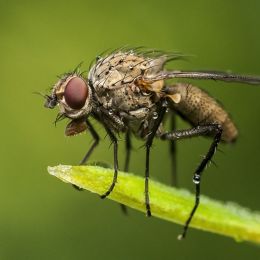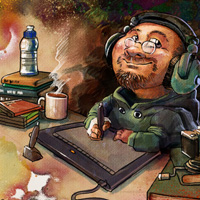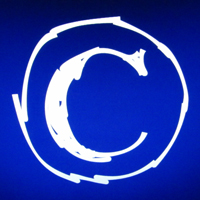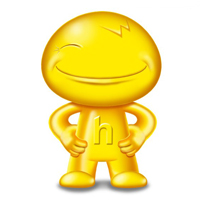- photo contests ▼
- photoshop contests ▼
- Tutorials ▼
- Social ▼Contact options
- Stats ▼Results and stats
- More ▼
- Help ▼Help and rules
- Login
Creating Icons - Gimp Tutorial
Draw A Paint Brush - Gimp Tutorial

So, we want to create a nice paintbrush image with GIMP. This tutorial can be a bit complex and I think it is better for a bit more advanced GIMPer. If you want to learn the basics, a good way to do so is to get one of the many GIMP books written. If I must pick one to recommend, I think it would be Grokking The Gimp, it is pretty good. But I am sure many of the others are great too, check a few out at your bookstore!
submitted: 5 years and 4025 days ago
Photo to Sketch - Gimp Tutorial
High Pass Filter Sketch Effect - Gimp Tutorial

High pass filtering means that we filter away the low frequencies of something, and let the high frequency bands pass. In image terms, this means that the detail of an image is kept, while the larger scale gradients are removed. Luckily, it's not as complicated as it sounds. Let's see exactly how it works!
submitted: 5 years and 4025 days ago
Golden Text - Gimp Tutorial

Doesn't the title look really valuable? To reproduce this effect you need the incredible "Lighting"-Plugin. It is not in the standard gimp-1.0 distribution, you have to install it yourself. It can be found at Filters -> Light Effects -> Lighting Effects. This Plugin does a very good Bump-Mapping. Additionally it can map an enviroment-map to the image.
submitted: 5 years and 4025 days ago
Image Pipes 2 - Gimp Tutorial

A pixmap brush is an image, with both shape and color, that gets drawn with one of the paint tools. The pencil draws the pixmap with a single click. The paintbrush does the same with some extra options. The airbrush allows you to do levels of transparency for the pixmap brush. Even the eraser can be made to erase segments in the shape of the pixmap.
An image pipe is a series of pixmap brushes combined into one, so that one or more of the pixmaps from the image pipe is drawn as you click or drag the mouse.
submitted: 5 years and 4025 days ago
Image Pipes - Gimp Tutorial

GIMP 1.2 introduced a lot of new features that have been further improved in version 2.0, including the ability to use full color "pixmap brushes". In addition, you can also combine single frame pixmap brushes into a "image pipe". A GIMP Image Pipe allows you to spray out series of full color pixmaps. To make it more flexible, the order the images are painted onto the canvas can depend on direction, angle, speed, or other factors.
This effect can be used in many ways, from a simple way to paint repeated images, or as sophisticated texture generation. The flexibilty in the way images are sequenced and composited to the canvas on the image can make creating a image pipe to do what you want seem difficult. However, for almost all common image pipes it is easy to set them up.
submitted: 5 years and 4025 days ago
Custom Brushes - Gimp Tutorial

Along with the brushes already included, you can create custom brushes using three methods. Simple shapes are created using the button labelled New at the bottom of the brush selection dialog. Complex black and white brushes can be created by saving a grayscale image as using the .gbr file extension. The content of such a brush is treated line an alpha-channel. This means that any pixel that is pure white is treated as transparent. However, in this tutorial we will be creating brushes that use pictures with colour and this brush will also have multiple images.
submitted: 5 years and 4025 days ago
Simple Animations - Gimp Tutorial

In this tutorial, you'll learn how to use GIMP's layers in a different manner. Unlike it's default composite function, using GIMP as an animation package requires you to think of every layer as of an animation frame. We'll discuss the two different frame disposal methods later on. For now let us think about every layer as of a separate frame.
submitted: 5 years and 4025 days ago








